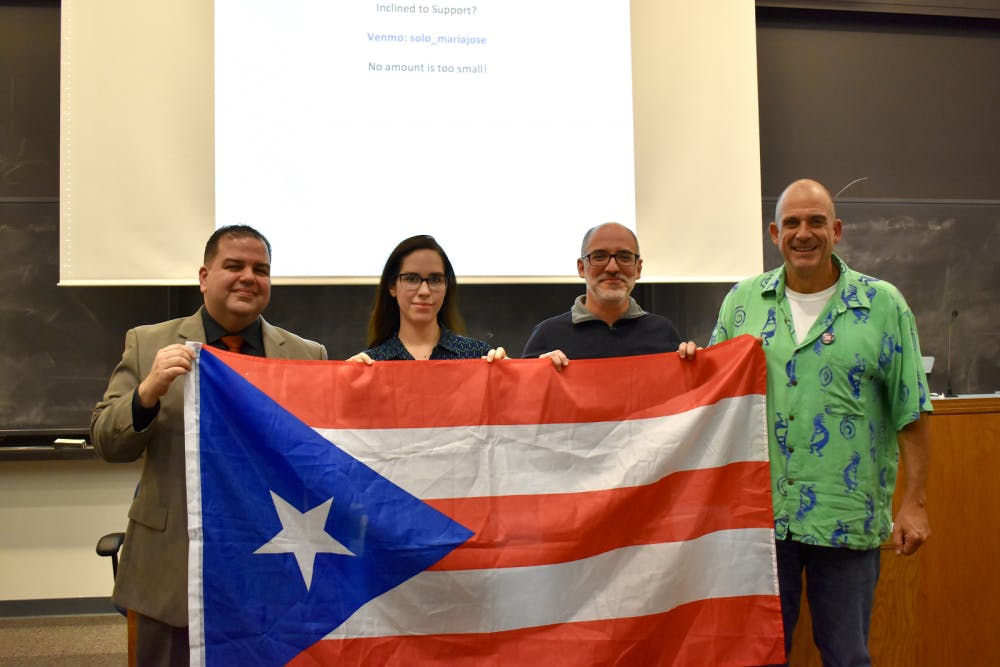On Sept. 20, 2017, Hurricane Maria struck Puerto Rico. The storm created an electricity outage recorded to be “the worst in U.S. history and the second-largest in the world.” The official death toll on the island has risen to 2,975, and the blackouts caused by the hurricane have affected the entire island of approximately 3.3 million residents.
Princeton Latinos y Amigos and the Association of Latinx Activism and Service (ALAS) hosted a panel on Friday, Nov. 16, to discuss the effects of Hurricane Maria. The panel was comprised of computer science lecturer Alan Kaplan, Writing Program lecturer Dannelle Gutarra Cordero, Latin American Studies Librarian Fernando Acosta-Rodriguez, and Jose Pabon ’19.
Each panelist shared their personal experiences and opinions on relief efforts.
Acosta-Rodriguez explained that his sister and his mother left the island because of the resulting economic instability after the hurricane.
“People are leaving because businesses are closing, there is increasing unemployment and an impoverished population,” said Acosta-Rodriguez. “Puerto Rico is one of the most unequal places in the planet.”
Cordero also recounted the difficulties in acquiring basic resources during the hurricane.
“I almost lost my mom. We were in the dark and there were curfews. There was a six-hour line to buy food because there was no free food around,” she explained.
Pabon shared his experience with the hurricane and that of his family, explaining the challenges that they still endure.

“My toddler remembers when the hurricane hit,” he said. “She still has nightmares about it.”
Pabon added that although his grandmother was already ill prior to the hurricane, she ultimately died because of the lack of water and food in the months following the hurricane.
The panelists also spoke on U.S. relief efforts, the economic aftermath, and the debate between Puerto Rican independence and statehood.
Cordero criticized the U.S. government for not having more engagement with relief efforts and advocated for Puerto Rico’s independence.

“Puerto Ricans are a disenfranchised group that is [discriminated against] and the majority is low income,” she said. “Congress has the last word on decisions concerning us. The debt should be wiped out and self determination needs to happen now.”
During this past summer, Kaplan taught a version of COS 126: Computer Science — An Interdisciplinary Approach at the University of Puerto Rico. He witnessed how the United States could have done more.
“Puerto Rico relief efforts pales in comparison to how the US has reacted to past events,” he said. “Look at the current fires at California. Puerto Ricans did not get enough aid. They are American just like everyone.”
Despite the response of the U.S. government to the hurricane, Pabon remains optimistic for the future.
“I think goodwill finds a way,” he said.
At the panel, ALAS also spoke about their recent efforts in Frist Campus Center to fundraise money for Puerto Rico. ALAS co-chair Michael Asparrin ’19 encouraged the University community to get involved.
Those who are interested in getting involved can Venmo their donations to “solo_mariajose.”
The panel was followed by a Q&A session and took place in Lewis Library at 4:30 p.m.








